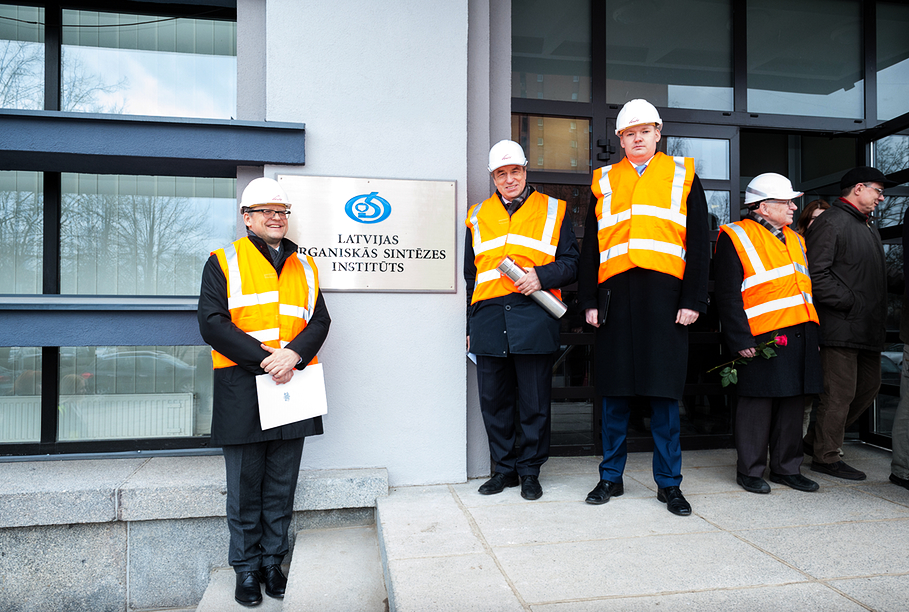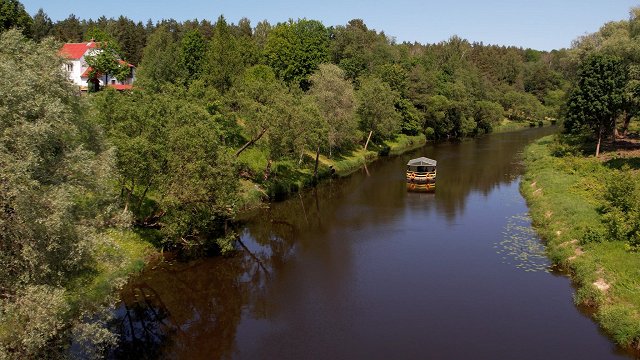As its director Ivars Kalviņš told Latvian Radio correspondent Vita Anstrate, the OSI has been part of a massive research project involving over thirteen European countries and thirty universities, private firms and applied science institutes, to develop novel antibiotics against Gram-negative pathogens in a project called ENABLE (European Gram Negative Antibacterial Engine).
However, as OSI has not received the necessary state co-funding monies (slightly over €2 million) required to qualify for the correlated EU co-financing according to its two-year old tender award guaranteed by the previous Cabinet led by Valdis Dombrovskis, Kalviņš said the institute would have no other pending choice now but to kill its part in the project.
“We are not talking about some kind of earnings, here. This is the saving of many people’s lives. There are many classes of bacteria we’re talking about that cause many different types of illness. More people are losing their lives from them, in Europe alone they would number in the tens of thousands,” he pointed out.
The project requires monthly budgeting of €40,000 that the OSI itself cannot cover, thus it is possible its participation in it may have to be forfeited.
“From our standpoint, it’s likely we’ll just have to stop taking part. Every moment it’s becoming harder for us to ensure that these monies will be there for the required flow. We had calculated these flows painstakingly, how much we take in, how much we pay out, but our Education and Science Ministry is in fact driving us straight into bankruptcy,” he fumed in disappointment.
Academy of Sciences president Ojārs Spārītis agreed the state must ensure its part in the support of Latvia’s academic research and scientific community. There could be special funding sources established, or other solutions sought, otherwise there is no point in striving for awards in the international tenders for innovative work, said the head of the nation’s academic community.
“This is Latvia’s chronic misfortune. You might have two projects winning the monies, like at the OSI, but the third project, failing to receive the required state funds, will be left unable to get at the 85% of the European monies otherwise supposed to be ready for the taking. Science loses,” he said.
Saeima Education, Culture and Science Committee member Ņikita Ņikiforovs acknowledged the problem flat out, saying the situation at the OSI was nothing unique.
“This happens regularly, especially in the education and science fields, we can’t find the funding for very promising projects and possibly ripe for future commercialization, with potential for recovering all investments plus rewards for the state’s contribution. This time is nothing unique in the sense that it goes on all the time,” the parliamentary deputy said.
But the ministry, which last promised the money at the end of the year, explained that it would likely be found by summertime.
The current budget restricts allocations for projects like this at a ceiling of €1.4 million.
“This is supposed to cover other projects, too,” explained ministry Higher Education, Science and Innovation Department spokesperson Inga Jēkabsone.
“We hope by June, July the OSI will get its long-awaited funding for the ENABLE project. Our current wherewithal just doesn’t let us cough it up at the snap of a finger like that,” she said. The budget rules also don't provide for a series of monthly allocations, added the ministry official.
On its website the OSI still hails its awarded part in ENABLE:
Professor Edgars Sūna, leader of OSI researchers’ team in the project emphasizes: “Participation in the development of new antibacterial drugs is very important step in the integration of Latvian researchers in European Research area and in the promotion of collaboration with foreign pharmaceutical companies, research institutes and universities. The invitation of researchers of OSI in the consortium of ENABLE reflects the high assessment of OSI researchers’ excellence and competence in the development of new drugs. The goal of project - to deliver novel drug candidates for Phase 2 clinical trials- is very ambitious and therefore we expect hard, but very interesting and fascinating work”.


























